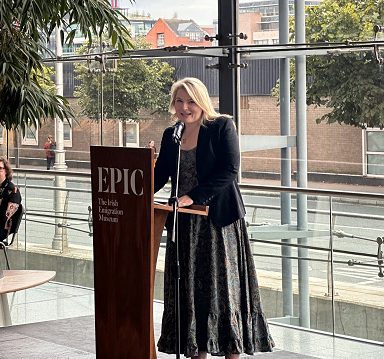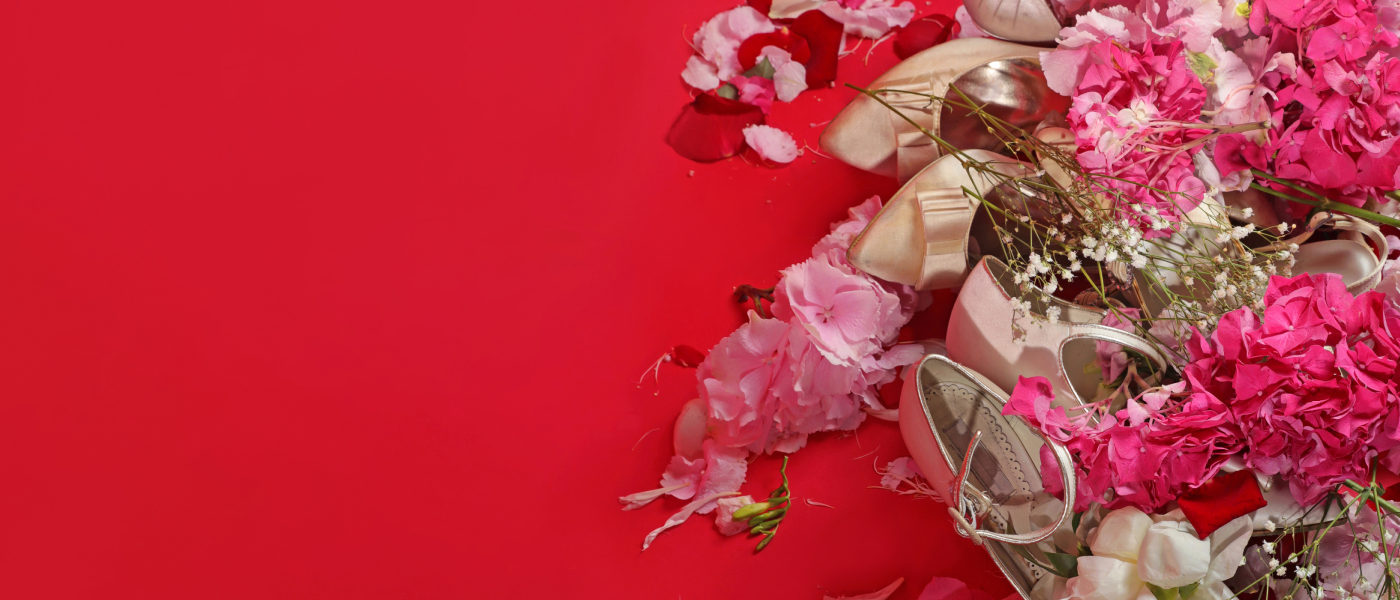
“I’m truly thrilled to be here at the opening of the Dublin Theatre Festival and even more so to be here with a new play Somewhere Out There You opening on the mainstage of the Abbey Theatre to be directed by the legendary Wayne Jordan.
The Dublin Theatre Festival has long been for those of us who for have devoted ourselves to the theatre, a bit like Christmas for kids – or Christians – it’s the highlight of the year. It’s something we save up for, gorge on, argue over, and for many of us, the work we have seen here over the years has left a profound and indelible mark on us as human beings and as artists.
The Dublin Theatre Festival is where I encountered the work of the Italian director Romeo Castellucci for the first time, over 20 years ago now. Giving away my age.
I distinctly remember seeing his Genesi, a three-hour stage piece inspired by the book of Genesis, in which Alsatians roamed freely onstage, there was a contortionist in a glass box and the stage itself, at one point began to breathe. The work grappled with ideas of creation and destruction, Auschwitz, the development of the nuclear bomb. It was haunting, devastating – like a glimpse into one’s own unconscious during a nightmare. It is an experience that changed me in ways I didn’t fully understand then, and probably still can’t fully articulate now. It has stayed with me ever since.
Later, as part of the same festival, I went to Q and A with Castellucci, where the essence of what he said, if memory serves, was that no matter what he was working on – whether Shakespeare or the bible – his mission was to metaphorically burn down the text and distil it to image.
Obviously as a playwright now, ‘text’ has become kind of important to me, so I might have some feelings about metaphorically burning it. But it was Castellucci’s words and work that probably led to my belief, that image can and should play as important a role in playwrighting as anything else. They also made reflect me on the fact that, even from a playwright’s perspective, words alone are not just what make up a great play. Plays are a strange alchemy of many things. Rhythm and silence, truth and courage are arguably as important elements in a great play, as plot, character and dialogue.
And the most important element of all might be desire. The desire on the part of those of us who create theatre to communicate something from deep inside ourselves to an audience.
Somewhere Out There You is probably, on the surface, about as far from Genesi as you could get. It’s unashamedly in the genre of romantic comedy – its ‘plot’ centres around someone bringing home her ‘hot’ new boyfriend to meet her family and no one in her family believing he could possibly be her boyfriend. It’s ambitious in cast size and scale, and thank you to the Abbey for supporting that. But it also attempts to wrestle with ideas of truth, roleplay, narrative and how we express our authentic selves in the world, whether as artists or people. And what happens when the world refuses to allow us to do so.
All theatre artists know the frustrations of artistic expression. Whether it’s funding cuts, a pandemic that has decimated the sector, or ‘thanks but no thanks’ from the powers that be, rejection is part of every artist’s life, especially theatre artists. Recently I have noticed a trend in newspaper interviews with playwrights or directors who have been in the game a long time, in which the journalists talk about that director or writer’s ‘career’. I looked up the definition of ‘career’ recently – just for fun – and it said: ‘an occupation undertaken for a significant period of a person’s life and with opportunities for progress…’.
An occupation undertaken for a significant period of a person’s life feels absolutely true, the opportunities for progress… more precarious. As a playwright you never know if your next play will be your last, an actor never knows if they’ll be hired again, a director if their vision is still relevant. And we all know all too well how it has been for the women artists in this country for too long.
Of course things can be changed. And that which can be changed must be. After Waking the Feminists, we have seen more women in roles of artistic leadership in Ireland and I’m proud to be one of several Irish women, including Erica Murray, Janet Moran, Karen Egan and Deirdre Kinahan, to be premiering new plays as part of this year’s festival.
But the truth is a ‘career’ in theatre is not so much a career as a life. A life riddled with uncertainty – both financial and emotional – a life that requires resilience and perseverance and a willingness to be judged, but a life which also holds within it the possibility of communicating profoundly with an audience. An audience made up of individuals with their own joys, griefs and losses, who for one evening or afternoon have gathered together in a room to have a shared experience. An experience which might reveal to them something about themselves, about the world, about life. An experience which can never be repeated in quite the same way twice.
This is the privilege of a life in theatre. It is why we do it. It is what makes the Dublin Theatre Festival, with its commitment to celebrating and spotlighting national and international artists’ life’s work so necessary, and such a great privilege to be a part of.
Because as ephemeral as theatre as an art form is, there is always the possibility that there is someone out there, over twenty years after the fact, who remembers the Alsatians roaming freely onstage, and the stage breathing, and the bodies in space, and who knows that in some strange indescribable way, the person they were when they walked into that room, unaware of what they were about to see, was the not the same person who walked out.”
Nancy Harris
July 2023
Somewhere Out There You runs on the Abbey stage from 27 September – 28 October 2023. Read more and buy tickets here.



